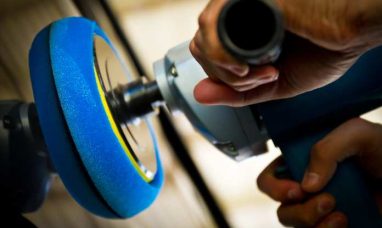In an effort to increase access to the medication, the U.S. Food and Drug Administration announced on Wednesday that it had permitted state-licensed pharmacists to recommend Paxlovid, a COVID-19 tablet made by Pfizer Inc. (NYSE:PFE). It is approved to treat newly infected, at-risk individuals to prevent severe illness. The drug’s use has recently increased as infections have increased.
The director of the FDA’s Center for Drug Evaluation and Research, Patrizia Cavazzoni, said, “Since Paxlovid must be taken within five days after symptoms begin, authorizing state-licensed pharmacists to prescribe Paxlovid could expand access to timely treatment for some patients,”.
According to the agency, patients who tested positive for COVID-19 should bring their medical records so that the pharmacists can check for kidney and liver problems. If there is insufficient information to evaluate kidney or liver function or adjustments are required owing to possible drug interaction, the agency advised pharmacists to refer the patients to a healthcare professional with a prescription drug license.
In order for their pharmacist to screen for medications that can interact with Paxlovid, patients should also submit a list of the medicines they are currently taking, according to the FDA. In Pfizer’s (NYSE:PFE) clinical trial, which excluded those who had received the vaccine, Paxlovid, a two-drug regimen given for five days soon after the onset of COVID-19 symptoms, reduced the risk of hospitalization or death by up to 88% in non-hospitalized, high-risk adult patients.
Since December, it has been approved for usage and made freely available in the U.S. However, less than half of the almost 4 million courses the U.S. government has given pharmacists so far have been administered. Compared to residents of wealthier zip codes, people in socially and economically disadvantaged areas have around a 50% lower likelihood of receiving antiviral COVID-19 medications like Paxlovid, according to research by the U.S. Centers for Disease Control and Prevention (CDC). While more dispensing sites were placed in high-vulnerability U.S. zip codes than in the more affluent areas, the Centers for Disease Control and Prevention (CDC) studies showed this disparity.
More than 1 million oral antiviral prescriptions were filled in the United States between December 23, 2021, and May 21, 2022, with most medications being prescribed between March and May. CDC researchers examined the data from this period. According to the agency, the findings highlight the continued need to locate and remove obstacles to oral antiviral access. The CDC study coincides with recent government initiatives to increase access to Pfizer (NYSE:PFE) and Merck medications. The “Test to Treat” program, which enables Americans to get tested at a pharmacy for COVID-19 and receive free pills if their test results are positive, is one of the federal efforts to increase treatment access.
In response to the COVID-19 pandemic, Pfizer (NYSE:PFE) created and released several medications, including Paxlovid and the Pfizer-BioNTech COVID-19 vaccine. Pfizer joined the COVID-19 Therapeutics Accelerator funding vehicle in March 2020 to hasten the creation of COVID-19 therapies. The Chan Zuckerberg Effort, the U.K. Foreign, Commonwealth and Development Office, and Madonna all pledged additional financing immediately after the Bill & Melinda Gates Foundation, Mastercard, and Wellcome Trust began the $125 million initiative.
The Foundation for the National Institutes of Health established the ACTIV (Accelerating COVID-19 Therapeutic Interventions and Vaccines) public-private partnership the following month to prioritize and accelerate the development of COVID-19 vaccines and pharmaceutical goods. Pfizer joined the alliance as a “leading organization” in the industry and took part in the clinical trials directed by ACTIV.
To document and monitor the progress of COVID-19 vaccination in Canada, Pfizer (NYSE:PFE) endorsed using a mobile vaccine passport app developed by CANImmunize.
Featured Image: DepositPhotos @MrHamster
















